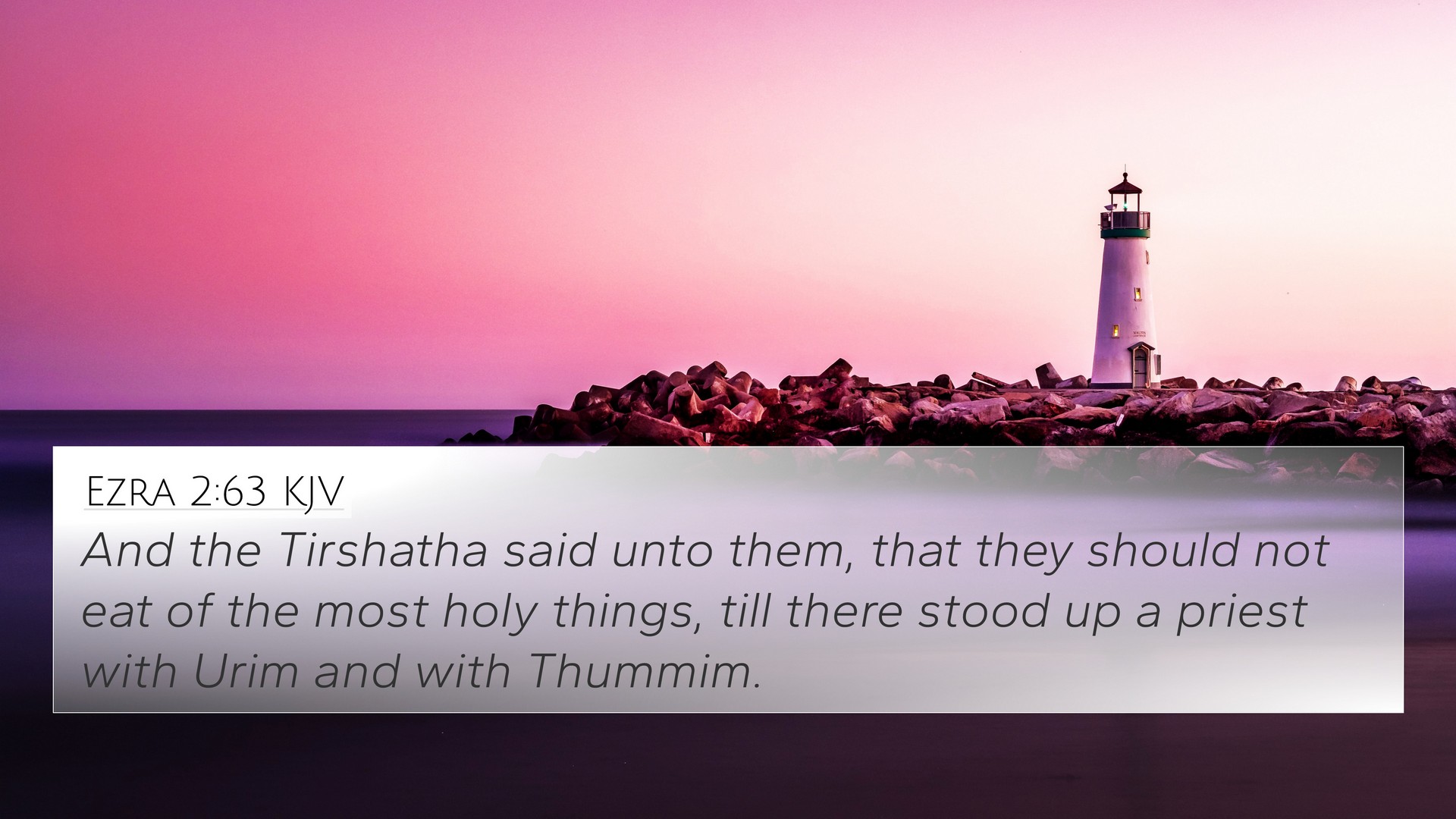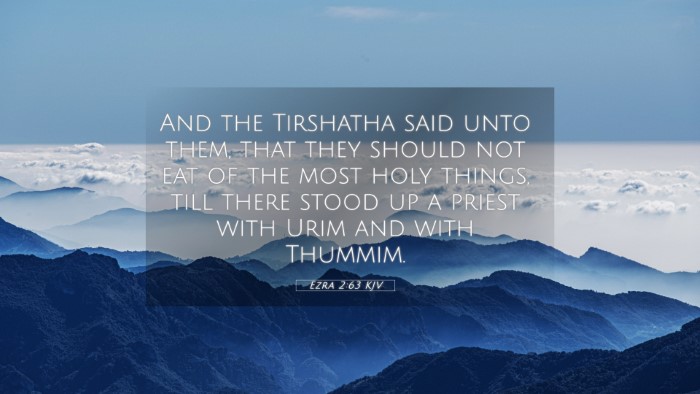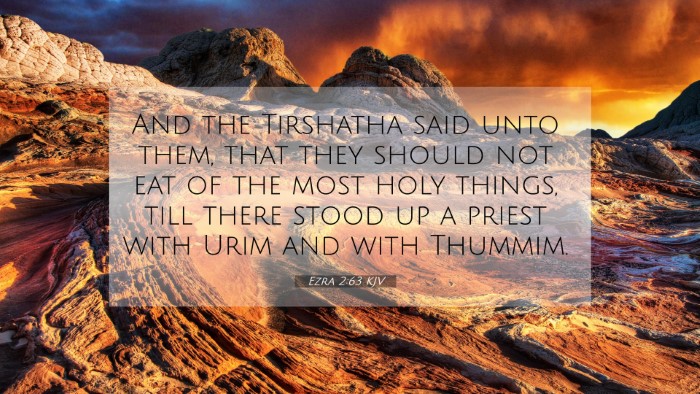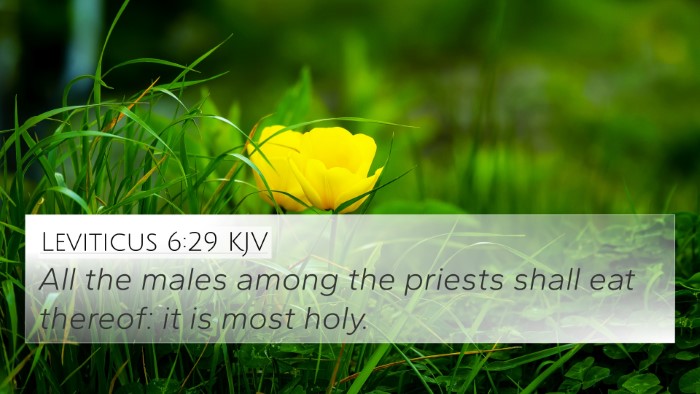This section features a detailed cross-reference designed to enrich your understanding of the Scriptures.
Below, you will find carefully selected verses that echo the themes and teachings related to Ezra 2:63 KJV. Click on any image to explore detailed analyses of related Bible verses and uncover deeper theological insights.
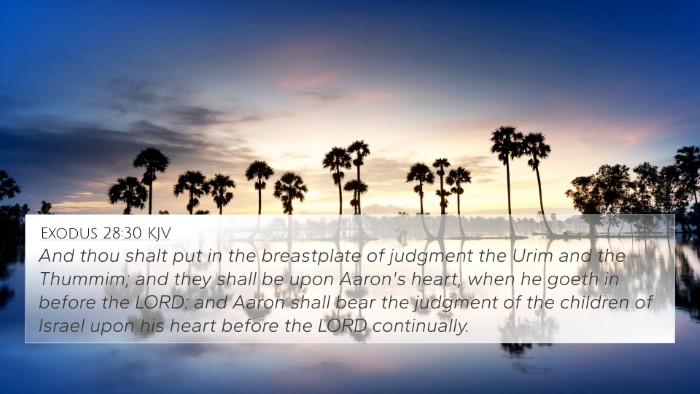 Exodus 28:30 (KJV) »
Exodus 28:30 (KJV) »
And thou shalt put in the breastplate of judgment the Urim and the Thummim; and they shall be upon Aaron's heart, when he goeth in before the LORD: and Aaron shall bear the judgment of the children of Israel upon his heart before the LORD continually.
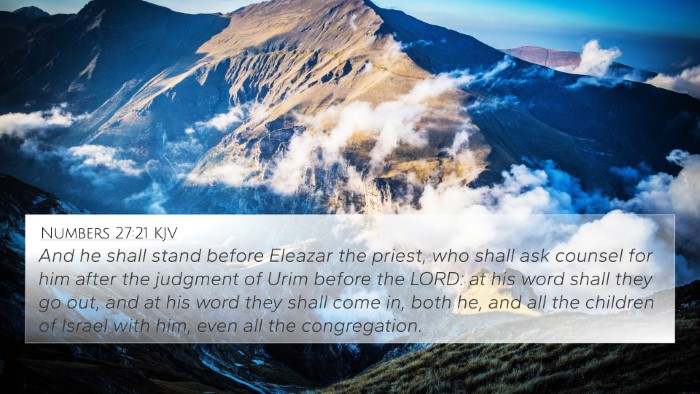 Numbers 27:21 (KJV) »
Numbers 27:21 (KJV) »
And he shall stand before Eleazar the priest, who shall ask counsel for him after the judgment of Urim before the LORD: at his word shall they go out, and at his word they shall come in, both he, and all the children of Israel with him, even all the congregation.
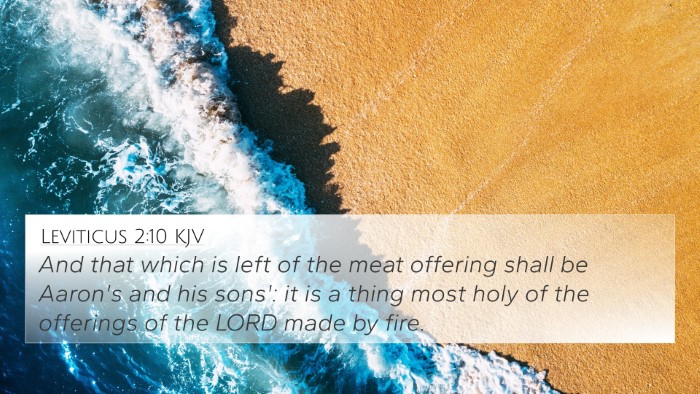 Leviticus 2:10 (KJV) »
Leviticus 2:10 (KJV) »
And that which is left of the meat offering shall be Aaron's and his sons': it is a thing most holy of the offerings of the LORD made by fire.
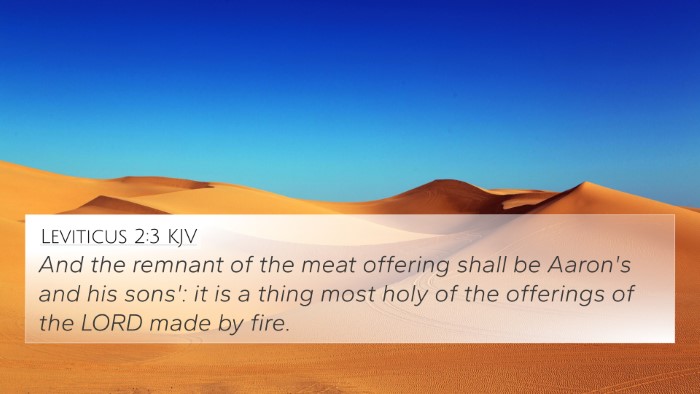 Leviticus 2:3 (KJV) »
Leviticus 2:3 (KJV) »
And the remnant of the meat offering shall be Aaron's and his sons': it is a thing most holy of the offerings of the LORD made by fire.
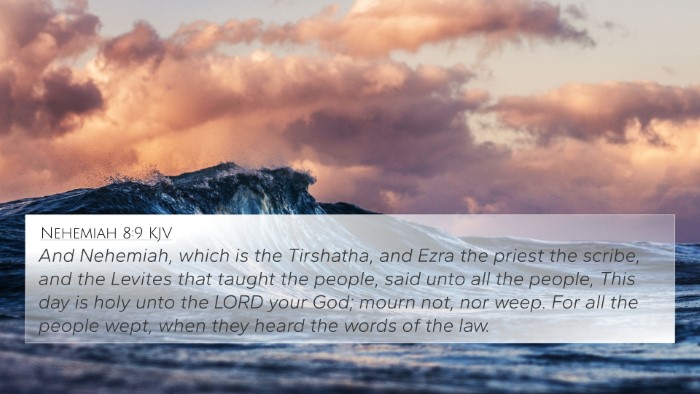 Nehemiah 8:9 (KJV) »
Nehemiah 8:9 (KJV) »
And Nehemiah, which is the Tirshatha, and Ezra the priest the scribe, and the Levites that taught the people, said unto all the people, This day is holy unto the LORD your God; mourn not, nor weep. For all the people wept, when they heard the words of the law.
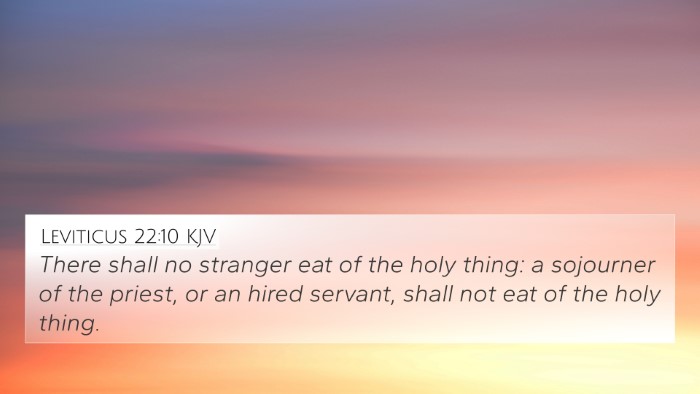 Leviticus 22:10 (KJV) »
Leviticus 22:10 (KJV) »
There shall no stranger eat of the holy thing: a sojourner of the priest, or an hired servant, shall not eat of the holy thing.
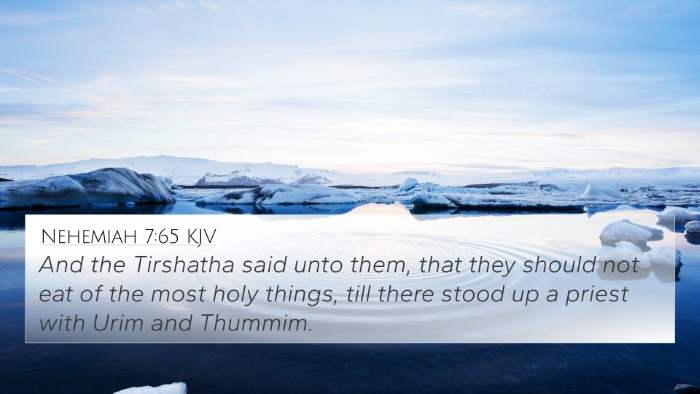 Nehemiah 7:65 (KJV) »
Nehemiah 7:65 (KJV) »
And the Tirshatha said unto them, that they should not eat of the most holy things, till there stood up a priest with Urim and Thummim.
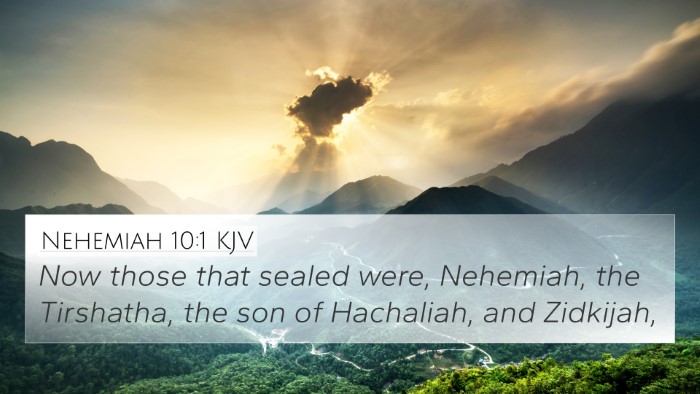 Nehemiah 10:1 (KJV) »
Nehemiah 10:1 (KJV) »
Now those that sealed were, Nehemiah, the Tirshatha, the son of Hachaliah, and Zidkijah,
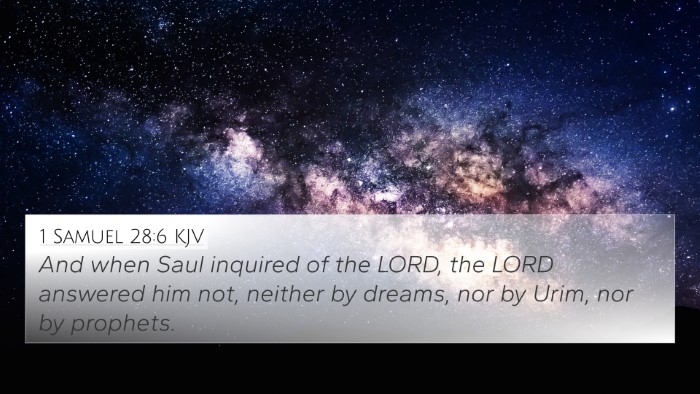 1 Samuel 28:6 (KJV) »
1 Samuel 28:6 (KJV) »
And when Saul inquired of the LORD, the LORD answered him not, neither by dreams, nor by Urim, nor by prophets.
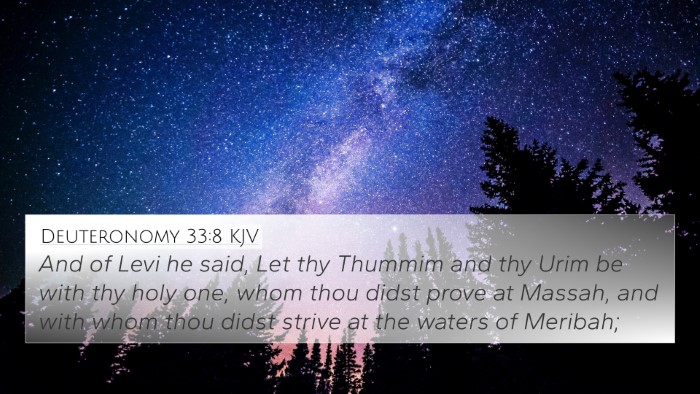 Deuteronomy 33:8 (KJV) »
Deuteronomy 33:8 (KJV) »
And of Levi he said, Let thy Thummim and thy Urim be with thy holy one, whom thou didst prove at Massah, and with whom thou didst strive at the waters of Meribah;
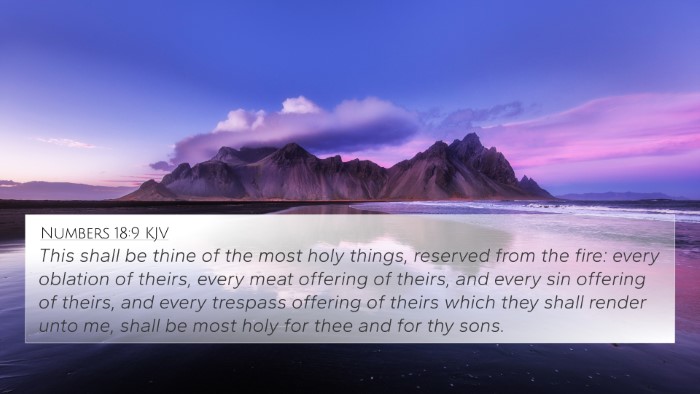 Numbers 18:9 (KJV) »
Numbers 18:9 (KJV) »
This shall be thine of the most holy things, reserved from the fire: every oblation of theirs, every meat offering of theirs, and every sin offering of theirs, and every trespass offering of theirs which they shall render unto me, shall be most holy for thee and for thy sons.
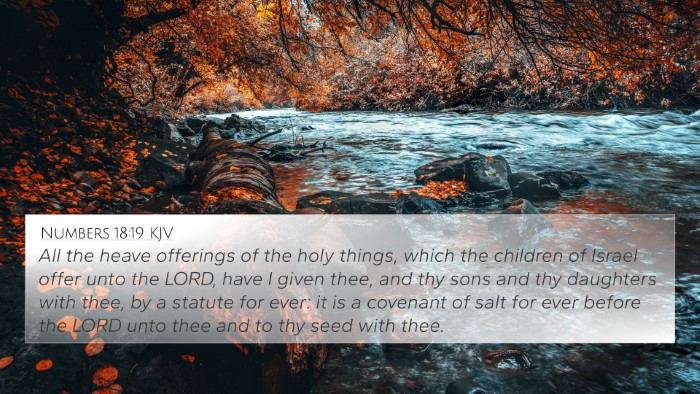 Numbers 18:19 (KJV) »
Numbers 18:19 (KJV) »
All the heave offerings of the holy things, which the children of Israel offer unto the LORD, have I given thee, and thy sons and thy daughters with thee, by a statute for ever: it is a covenant of salt for ever before the LORD unto thee and to thy seed with thee.
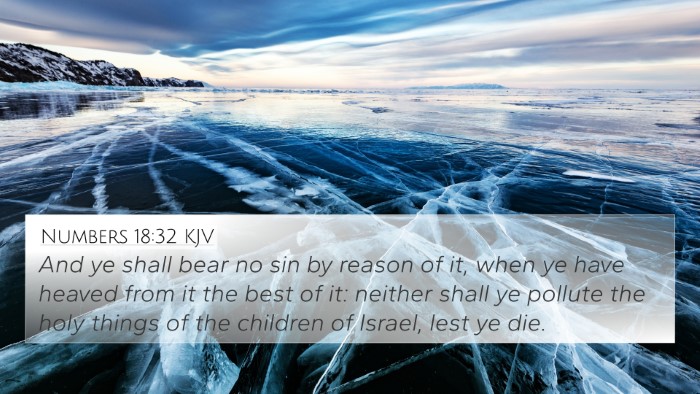 Numbers 18:32 (KJV) »
Numbers 18:32 (KJV) »
And ye shall bear no sin by reason of it, when ye have heaved from it the best of it: neither shall ye pollute the holy things of the children of Israel, lest ye die.
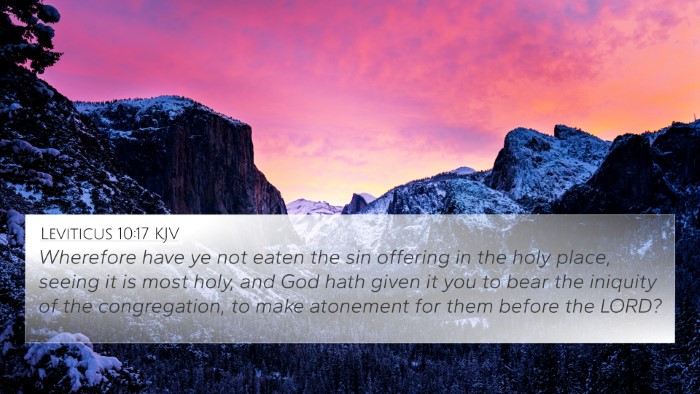 Leviticus 10:17 (KJV) »
Leviticus 10:17 (KJV) »
Wherefore have ye not eaten the sin offering in the holy place, seeing it is most holy, and God hath given it you to bear the iniquity of the congregation, to make atonement for them before the LORD?
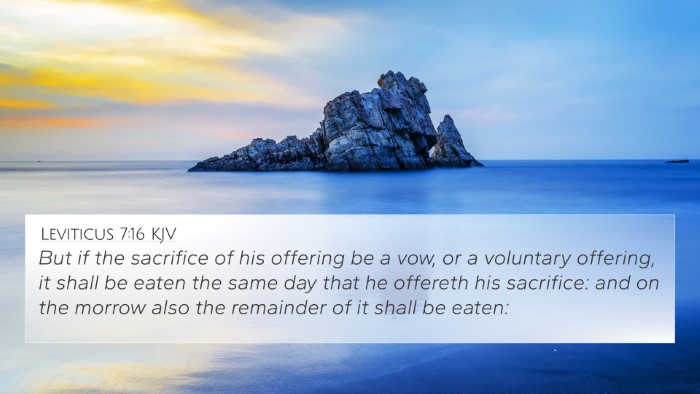 Leviticus 7:16 (KJV) »
Leviticus 7:16 (KJV) »
But if the sacrifice of his offering be a vow, or a voluntary offering, it shall be eaten the same day that he offereth his sacrifice: and on the morrow also the remainder of it shall be eaten:
 Leviticus 22:2 (KJV) »
Leviticus 22:2 (KJV) »
Speak unto Aaron and to his sons, that they separate themselves from the holy things of the children of Israel, and that they profane not my holy name in those things which they hallow unto me: I am the LORD.
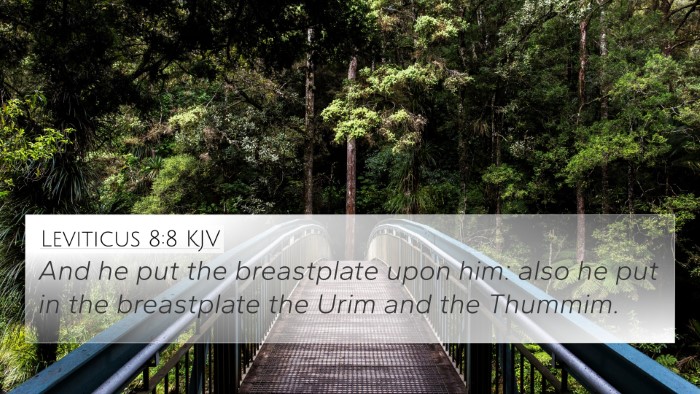 Leviticus 8:8 (KJV) »
Leviticus 8:8 (KJV) »
And he put the breastplate upon him: also he put in the breastplate the Urim and the Thummim.
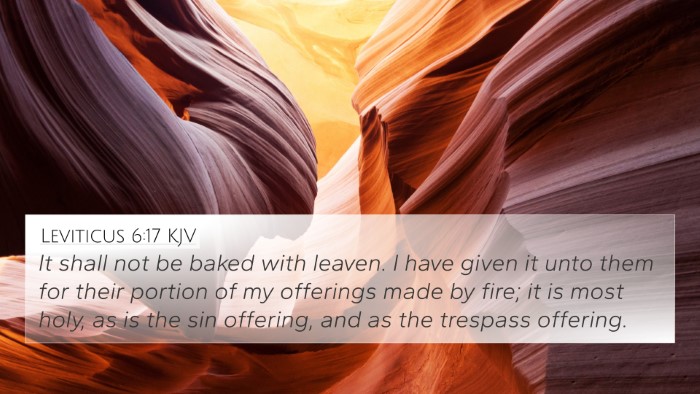 Leviticus 6:17 (KJV) »
Leviticus 6:17 (KJV) »
It shall not be baked with leaven. I have given it unto them for their portion of my offerings made by fire; it is most holy, as is the sin offering, and as the trespass offering.
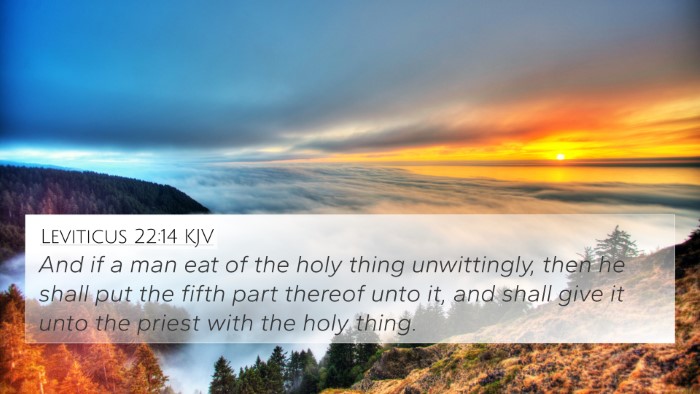 Leviticus 22:14 (KJV) »
Leviticus 22:14 (KJV) »
And if a man eat of the holy thing unwittingly, then he shall put the fifth part thereof unto it, and shall give it unto the priest with the holy thing.
